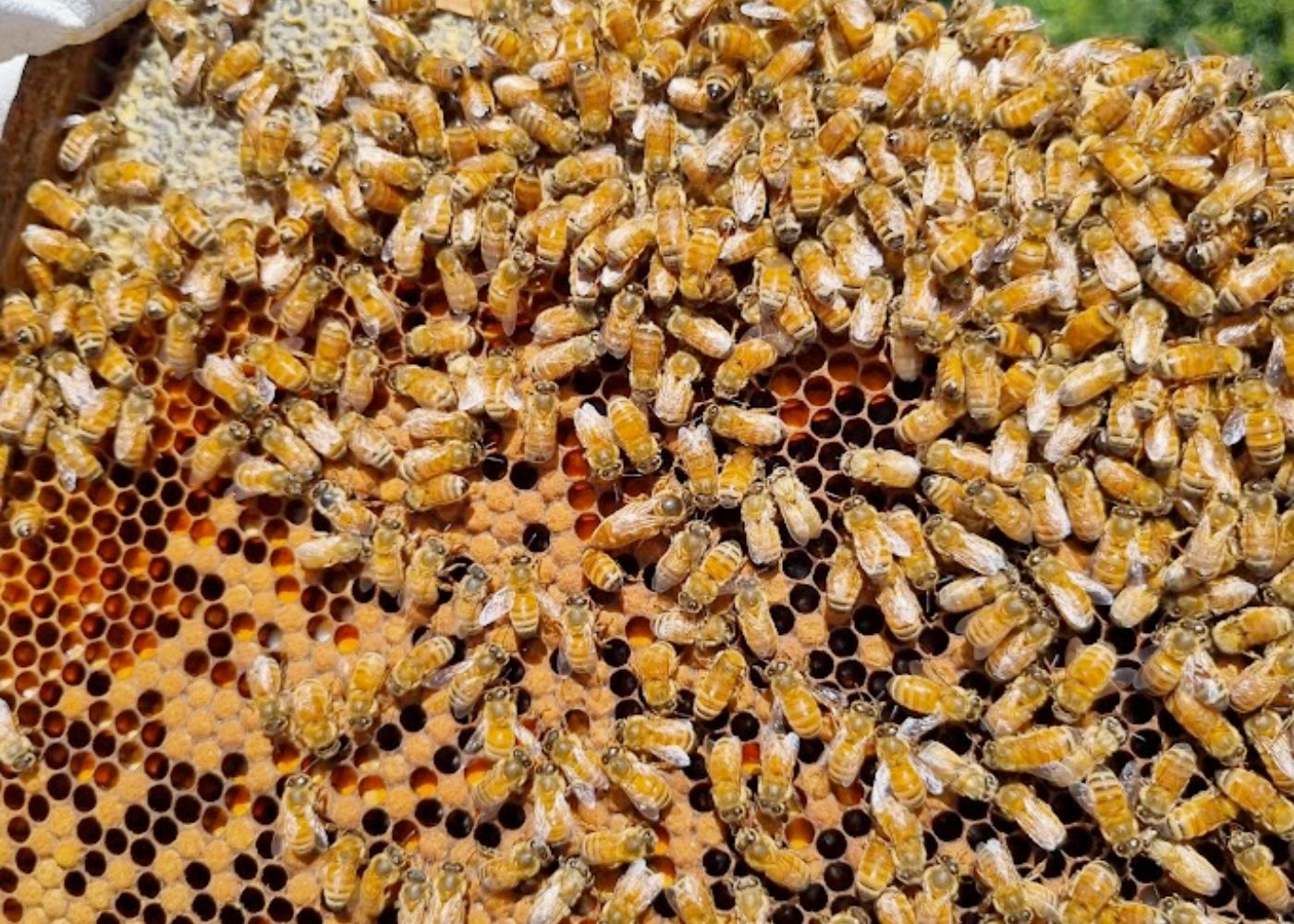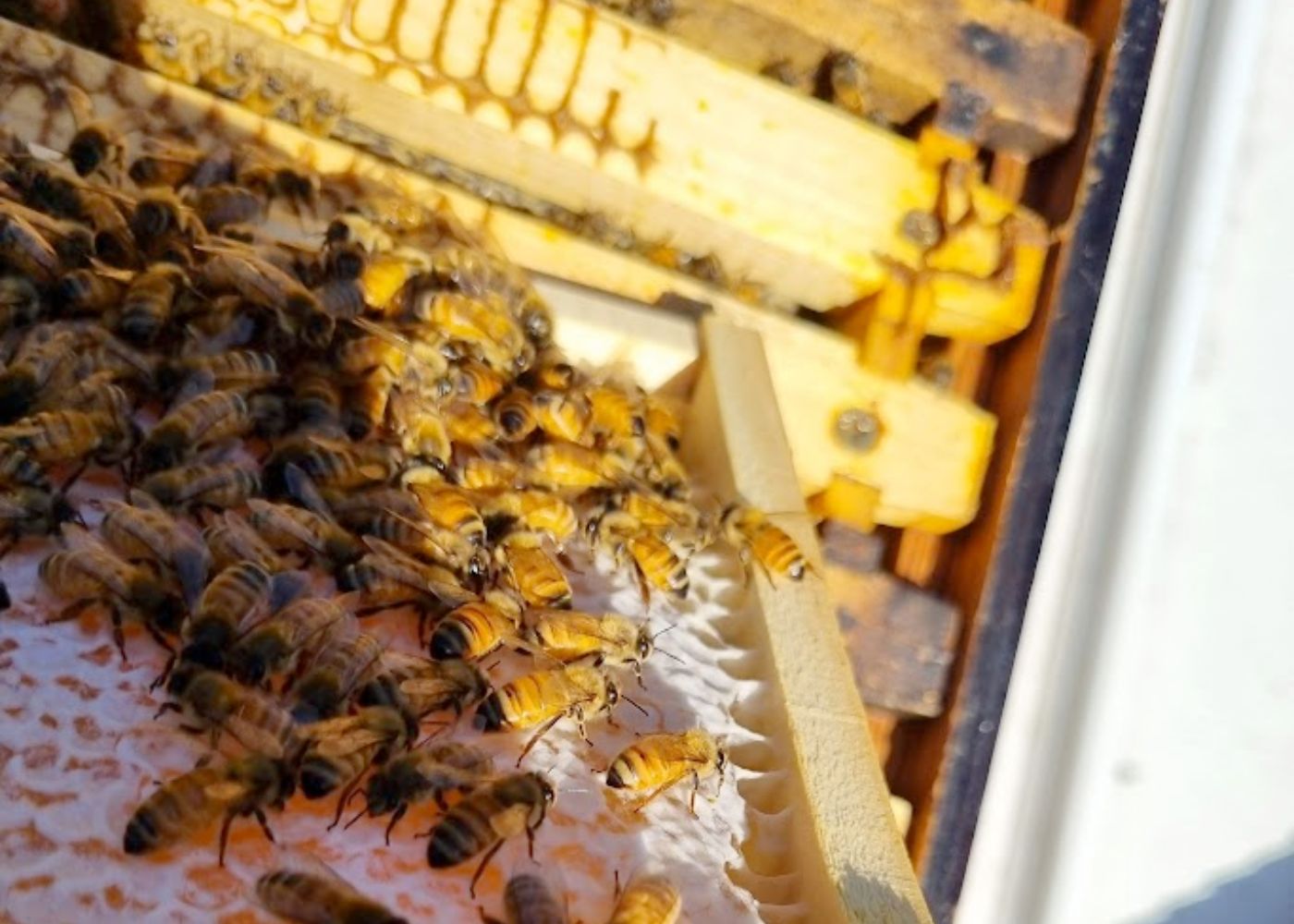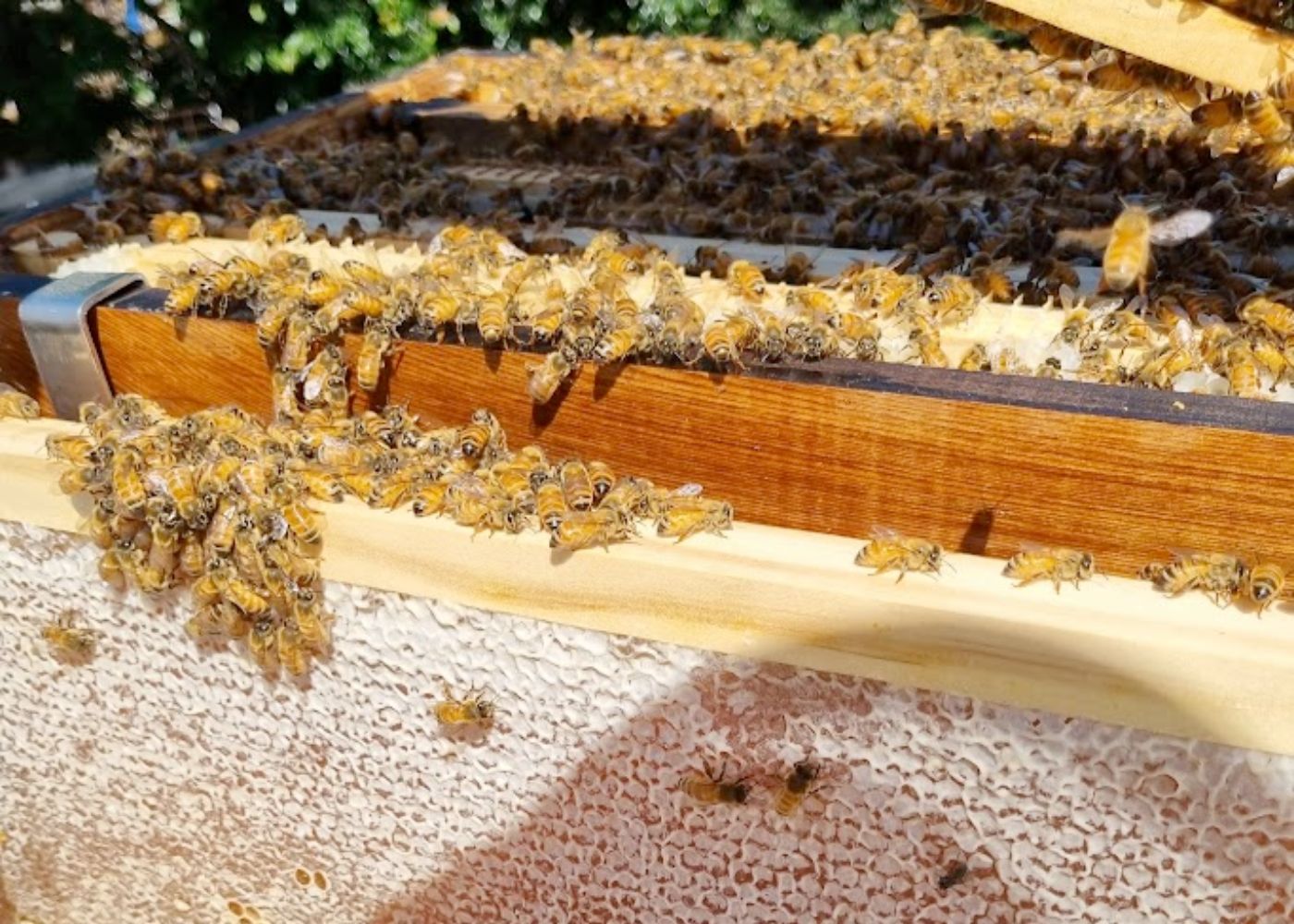How to Create A Profitable Beekeeping Business At Home
Are you looking for an unconventional and personally rewarding business idea that you can set up directly from your home? Do you want to work for yourself and remain in touch with the natural world? If so, beekeeping might be the right choice for you.
Don’t worry, you don’t have to have a background in farming or agriculture to begin your journey into profitable beekeeping. With enough research and the right equipment, it’s an achievable goal for most mums who want to operate a business from home while still juggling family commitments.
The profit potential for beekeeping goes beyond just selling honey. Let’s take a look at how you can explore beekeeping as a lucrative home business or side hustle.

Important Things To Consider Before You Start Beekeeping
Beekeeping for profit requires more than just interest and a desire to make money! Here are some things you have to know before you start, to make sure that this is an achievable venture.
Start-Up Costs of a Beekeeping Home Business
Initial start-up costs for an apiary can run high, depending on how many hives and what kind of equipment you choose. But you should expect to spend a minimum of $500-700 for hives, bees, equipment, protective clothing, education resources, and more.
Learn the Basics of Beekeeping
Learning to keep bees is an achievable goal for most people, but there is a learning curve. At a minimum, you will need to read books on the subject or even take local classes and workshops to learn the basics.
You’ll find books about beekeeping at your local library, so you don’t need to spend a lot of money there. And a simple Google search can help you find some local beekeeping courses in your local area.
Laws and Regulations of Beekeeping
Depending on the country and region you live in, and how many hives you plan to maintain, there may be regional laws and regulations that could restrict or even threaten a potential business.
It’s important to be familiar with zoning laws, licensing issues, and other regulations before you get started, so check with your local council who will be able to guide you to what laws and regulations apply to your area.
Hive Management
Keeping bees is not a “set and forget” type of endeavor. Your bees need a safe and healthy environment to thrive in!
It’s your job to learn how to manage your hive in a way that will protect bees from common threats like pests and disease. Again, there are plenty of courses and books that can help point you in the right direction for proper hive management.
Time Requirements of Running a Beekeeping Business
As an busy mum, you likely have a full schedule already. Beekeeping requires time, especially if you hope to turn it into a money-making operation.
You need time to set up your hives, regularly inspect and maintain hives, as well as protecting your bees, and harvesting your product. Also, depending on the bee-adjacent product or service you choose to sell, it could take several years before you even see a profit.
Ask yourself – do you have the time and patience to run a beekeeping business?

How To Make Money From Beekeeping
When it comes to making money through beekeeping, the first decision you need to make is what you will sell. As you’re about to see, beekeepers have many more business options than simply selling honey.
1. Making and Selling Honey
Of course, producing and selling honey is the most common way for beekeepers to earn money. If you have a good community network, then directly selling honey products requires minimal setup.
Fresh and affordable honey is usually in moderate-to-high demand, so selling to friends and family is a simple and effective option for jump-starting your business. You can also use affordable marketing through social media and community message boards to reach new customers.
How to Diversify Your Honey Products
Honey can come in a huge range of flavors and varieties.
Rather than selling plain honey, you can produce your own concoctions, infusions, and types to give yourself a more unique and marketable product.
For example, the nectar source you provide for your bees will have a direct influence on the flavor of your honey and how you can market it. Consider planting specific plants or trees that will impart a unique and sought-after flavor.
Some different flavors and products include but are not limited to:
- Vanilla
- Chilli
- Berries: blueberry, raspberry, strawberry etc
- Acacia honey, made via pollination of the black locust tree
- Dandelion
- Lavender
- Manuka
- Orange Blossom
2. Beeswax Products
Beeswax is a product produced by European honeybees, specifically worker bees. They produce liquified wax through their abdominal glands, which is then used to create those tiny hexagonal cells that make up the structure of a beehive.
This wax can be harvested from hives and used in a variety of ways, most notably candle-making. It is also used to make beeswax wraps, furniture polish, beauty products, and more.
While it was a more prominent ingredient in the past, there are still plenty of people who use beeswax, including small bespoke businesses. It is a famously renewable and environmentally friendly material, so sustainable businesses especially may be a good target for sales. You can either sell the raw wax as is or create beeswax products yourself.
Be aware that this avenue will depend on how many hives you have. Selling beeswax only makes financial sense if you have a large number to extract from. Consider that most beekeepers produce 1% to 1.5% beeswax to the weight of honey produced.
Bee pollen, propolis, and royal jelly are other sought-after byproducts of beehives that can be harvested and sold as separate products.
3. Bee Swarm Removal
Swarm removal services are also in high demand, and can provide a healthy income for experienced beekeepers. ‘Swarms’ are the result of a bee colony splitting in two, either due to congestion or for reproductive purposes.
While honeybee swarms are not dangerous, they can be disruptive. Property owners will pay to have swarms collected and removed from properties, which is where someone like you would come in.
This option may be trickier for stay-at-home mums who still have under-5s at home during the day, as customers may need swarm collectors to arrive during the day and on weekdays.
4. Pollination Services
If you live in a region with a large agricultural industry, starting a pollination service could be an excellent option. The global bee population decline means that many farms rely on outsourcing beekeepers to adequately pollinate their crops. As a result, pollination services now make up the largest source of income in the beekeeping industry.

Is It Time To Start Your Beekeeping Home Business?
These are just a few of your options if you want to start your own bee-keeping business. But they are far from the only ones! Selling equipment, teaching services, and bees themselves are also options worth considering, amongst others.
Figuring out which beekeeping revenue stream works best for you will take time, research, and plenty of consideration. You may even want to consider using it as a part-time rather than a full-time operation – as long as you have enough time to manage your hives, you can be flexible in how you choose to balance your new beekeeping home business.
No matter what approach you may take, now you know one fantastic fact: beekeeping has amazing and varied potential as a home business for mums and anyone else interested in managing a home apiary.

Britney Callaghan is an experienced apiarist with over a decade of expertise in beekeeping and honey production. She is passionate about sustainable practices and educating the community on the importance of bees. Britney leads educational programs and outreach initiatives, inspiring others to embrace beekeeping and environmental stewardship.




